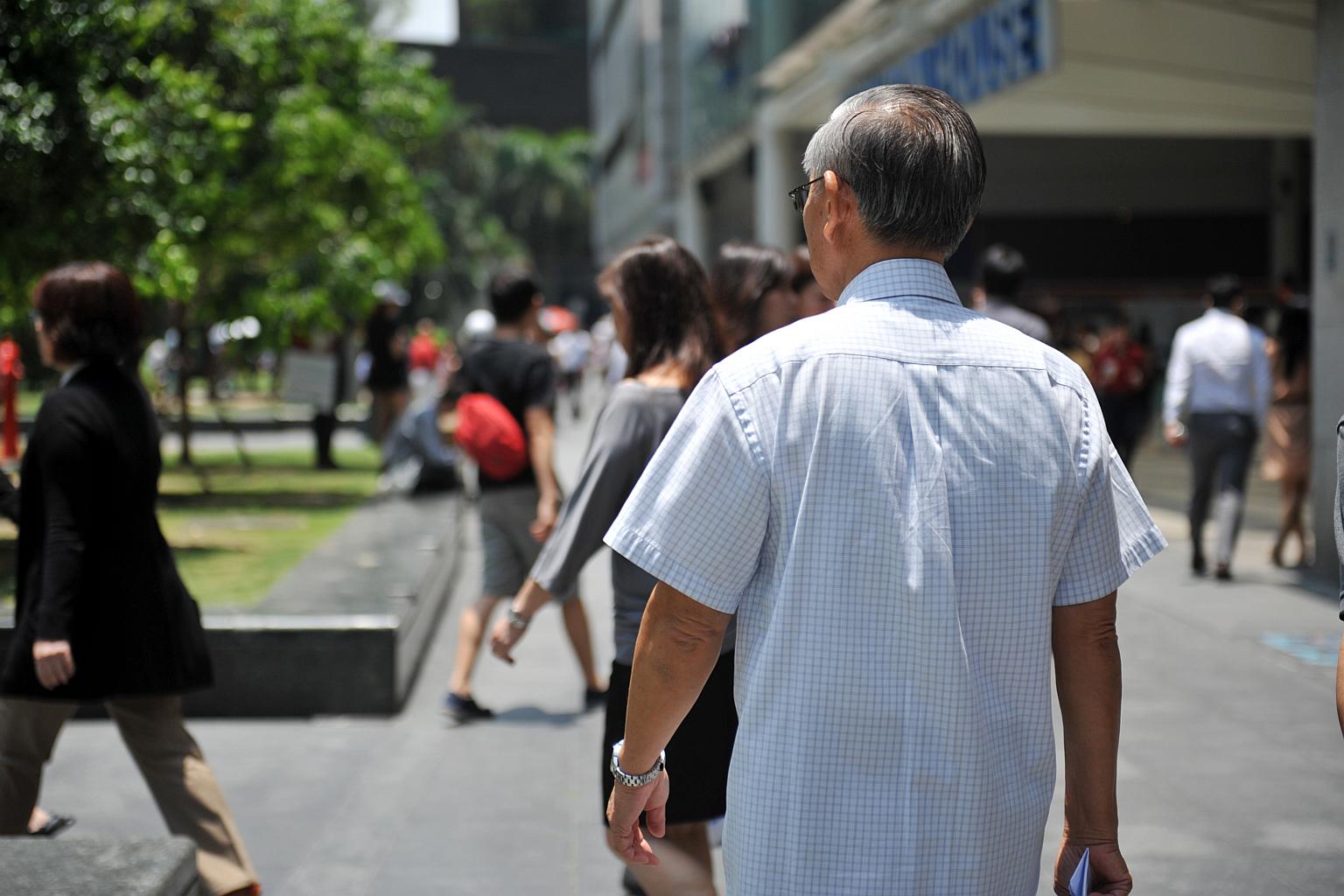More in Singapore remaining in workforce past 65
Govt policies, tight job market and rise in life expectancy among reasons for increase
Sign up now: Get ST's newsletters delivered to your inbox

A man walking in the central business district.
PHOTO: ST FILE
More people are remaining in the workforce beyond the official retirement age of 62, and the recontract age of 65.
More than 40 per cent of people aged 65 to 69 were still working last year, compared with just 24 per cent in 2006, according to the Ministry of Manpower (MOM).
Government policies, a tight job market and a rise in life expectancy and healthy years are among the factors for the increase.
Take, for instance, the requirement for companies to rehire workers aged 62 to 65. Senior Minister of State for Health Amy Khor, who is on the Ministerial Committee on Ageing, told The Straits Times: "Nearly all who approached 62 are offered re-employment.
"Most do not suffer any cut to their basic pay if they continue on the same job with the same job scope and responsibilities."
In 2014, 98 per cent who continued working beyond the age of 62 did not suffer any basic wage cut, with about 10 per cent earning higher wages.
Life expectancy here has been going up by about three years every decade and, in 2014, life expectancy was 80.5 years for men and 84.9 years for women.
-
EMPLOYED AS OF JUNE 2015
60-64 years old 149,200
65 - 69 years old 74,900
70 years and older 40,400
SOURCE: MANPOWER MINISTRY
As people live longer, they worry about whether they have enough for retirement, said Mr David Ang, director of consultancy Human Capital Singapore.
With an income, they remain financially independent and do not have to rely on their children. This helps their self-worth.
Many also realise that working even part-time keeps them socially and mentally engaged, said Singapore Management University labour economist Hoon Hian Teck.
Most employed Singaporeans and permanent residents over age 60 work as cleaners, labourers, machine operators, and service and sales workers, according to MOM statistics last year.
The Government has also made it more affordable for companies to hire older workers, said Professor Hoon. Government subsidies for companies that hire workers aged 65 and above "send the message that companies can productively hire (seniors) in an increasingly labour-scarce economy", he said.
The Workfare Income Supplement, introduced in 2007, has also added to the incomes of older, low-wage workers.
Labour economist Walter Theseira of SIM University said: "Income for older workers is higher now than it was in the past."
According to MOM, the median gross monthly income for resident workers aged 60 years and older increased from $1,160 in 2006 to $2,000 last year.
Because of the tight job market, employers have "to seriously consider older workers" as it is getting harder to employ foreign labour, said Professor Theseira.
Last year, one in four people aged 65 and above was employed. In 2006, this was 13.8 per cent.
Mr Ang predicted that by the next decade, the employment rate for senior citizens "will hit 30 per cent easily".
With the changing demographics, companies have to adapt to remain productive. Jobs are being redesigned and more companies are looking to design more senior- friendly workplaces, he said.
"The trend is to reduce fatigue, while maintaining productivity," said Mr Ang.
Cleaner Lee Kiong Mei, 67, a widow who has been at her job for five years, said that staying employed gives her purpose and makes her feel financially independent.
She said: "My children have their own families, and living expenses can be expensive. I don't want them to worry about me. Besides, I am happy at my job. I won't know what to do if I have no work. I am afraid that if I stop working, I will fall sick."
MORE IN TOP OF THE NEWS


